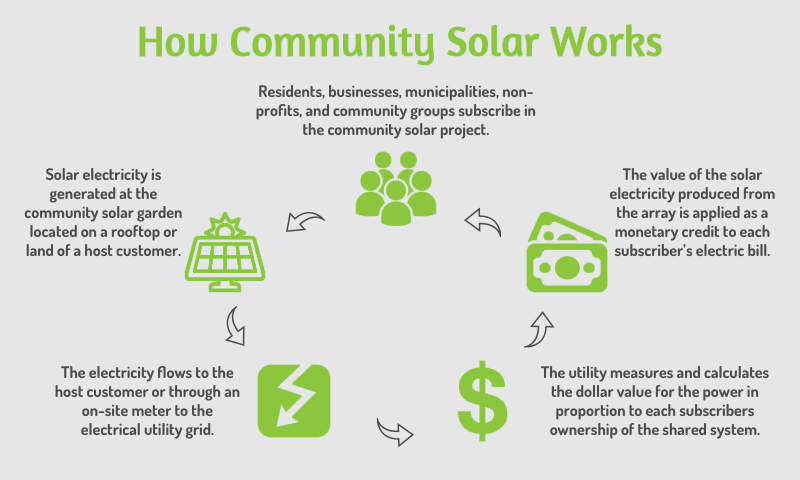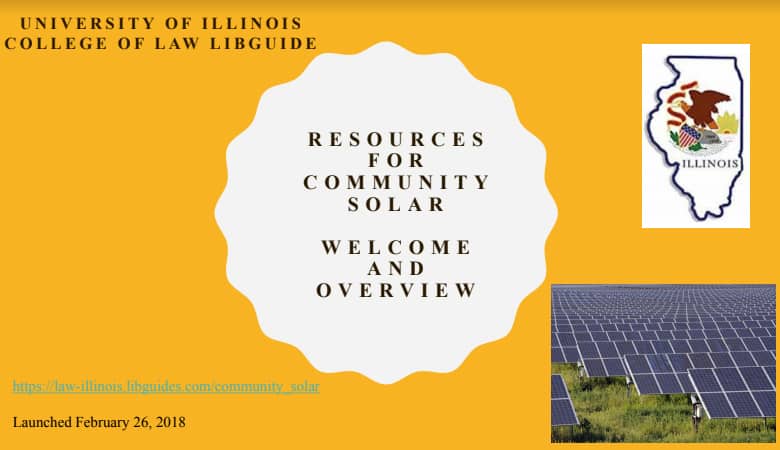In a previous blog post we shared information about community solar, a new program made possible by Illinois’ Future Energy Jobs Act. Community solar allows community members who may not have an opportunity for a solar project on their property, such as renters and those with shaded roofs or limited incomes, to come together as subscribers in an off-site community solar project.
 A community solar project requires many steps including siting, financing, implementation, and maintenance. Warren Lavey, at the University of Illinois College of Law, recognized the need to address the legal concerns during each step of the process. Legal considerations may arise around land leases, state and local regulations and laws, financing agreements, subscriber rights and responsibilities, site maintenance agreements, and decommissioning requirements.
A community solar project requires many steps including siting, financing, implementation, and maintenance. Warren Lavey, at the University of Illinois College of Law, recognized the need to address the legal concerns during each step of the process. Legal considerations may arise around land leases, state and local regulations and laws, financing agreements, subscriber rights and responsibilities, site maintenance agreements, and decommissioning requirements.
To address this need, he and a group of law students developed a website, housed with the University of Illinois College of Law Library, to consolidate legal resources so that municipalities and lawyers can understand community solar opportunities and benefits.
 Lavey explained, “There was no website that provided guidance and organization of materials for the legal side of the process. Our website was developed out of a course that I taught where law students helped collect materials available from other sources, associations, and people in the industry. It is an ongoing process of adding to it and making it more user friendly.”
Lavey explained, “There was no website that provided guidance and organization of materials for the legal side of the process. Our website was developed out of a course that I taught where law students helped collect materials available from other sources, associations, and people in the industry. It is an ongoing process of adding to it and making it more user friendly.”
Solar is a new industry in Illinois, and the website has compiled resources that will help lawyers with limited experience on such projects draft agreements and explain the laws to assist municipalities in implementing community solar.
Lavey hopes the website will help Illinois’ lawyers develop expertise and find project examples to fulfill the need for a new and growing industry. “A city attorney may be very experienced but has never done anything with community solar. Maybe an attorney at a law firm would like to do pro bono services to help low-income communities or non-profits take advantage, but they don’t have experience in community solar agreements,” Lavey said.







